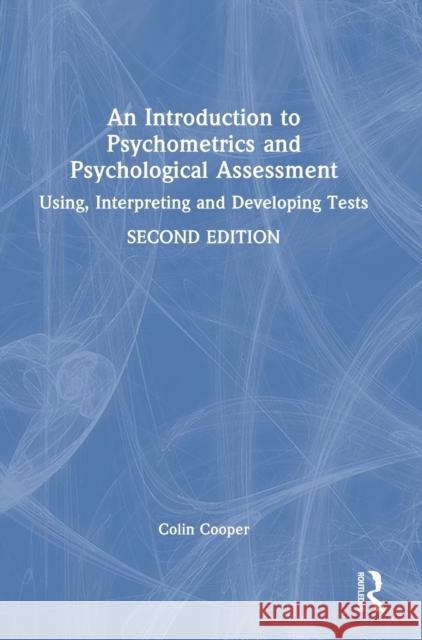An Introduction to Psychometrics and Psychological Assessment: Using, Interpreting and Developing Tests » książka
An Introduction to Psychometrics and Psychological Assessment: Using, Interpreting and Developing Tests
ISBN-13: 9781032146164 / Angielski / Twarda / 2023 / 364 str.
An Introduction to Psychometrics and Psychological Assessment: Using, Interpreting and Developing Tests
ISBN-13: 9781032146164 / Angielski / Twarda / 2023 / 364 str.
(netto: 629,71 VAT: 5%)
Najniższa cena z 30 dni: 629,67
ok. 22 dni roboczych.
Darmowa dostawa!
The successor to Cooper’s prize-winning book and shows how psychological questionnaires and tests can be chosen, administered, scored, interpreted and developed. An evaluative guide to choosing, using, interpreting and developing tests, it provides readers a thorough grasp of the principles (and limitations) of testing.
An Introduction to Psychometrics and Psychological Assessment is the successor to Cooper’s prize-winning book Psychological Testing: Theory and Practice. This expanded and updated volume shows how psychological questionnaires and tests can be chosen, administered, scored, interpreted and developed. In providing students, researchers, test users, test developers and practitioners in the social sciences, education and health with an evaluative guide to choosing, using, interpreting and developing tests, it provides readers a thorough grasp of the principles (and limitations) of testing, together with the necessary methodological detail.
This book has three distinctive features. First, it stresses the basic logic of psychological assessment without getting bogged down with mathematics; the spreadsheet simulations and utilities which are integrated into the text allow users to explore how numbers behave, rather than reading equations. Readers will "learn by doing". Second, it covers both the theory behind psychological assessment and the practicalities of locating, designing and using tests and interpreting their scores. Finally, it is evaluative. Rather than just describing concepts such as test reliability or adaptive testing, it stresses the underlying principles, merits and drawbacks of each approach to assessment, and methods of developing and evaluating questionnaires and tests. Unusually for an introductory text, it includes coverage of several cutting-edge techniques, and this new edition expands the discussion on measurement invariance, methods of detecting/quantifying bias and hierarchical factor models, and features added sections on:
- Best practices for translation of tests into other languages and problems of cultural bias
- Automatic item generation
- The advantages, drawbacks and practicalities of internet-based testing
- Generalizability theory
- Network analysis
- Dangerous assumptions made when scoring tests
- The accuracy of tests used for assessing individuals
- The two-way relationship between psychometrics and psychological theory
Aimed at non-mathematicians, this friendly and engaging text will help you to understand the fundamental principles of psychometrics that underpin the measurement of any human characteristic using any psychological test. Written by a leading figure in the field and accompanied by additional resources, including a set of spreadsheets which use simulated data and other techniques to illustrate important issues, this is an essential introduction for all students of psychology and related disciplines. It assumes very little statistical background and is written for students studying psychological assessment or psychometrics, and for researchers and practitioners who use questionnaires and tests to measure personality, cognitive abilities, educational attainment, mood or motivation.











